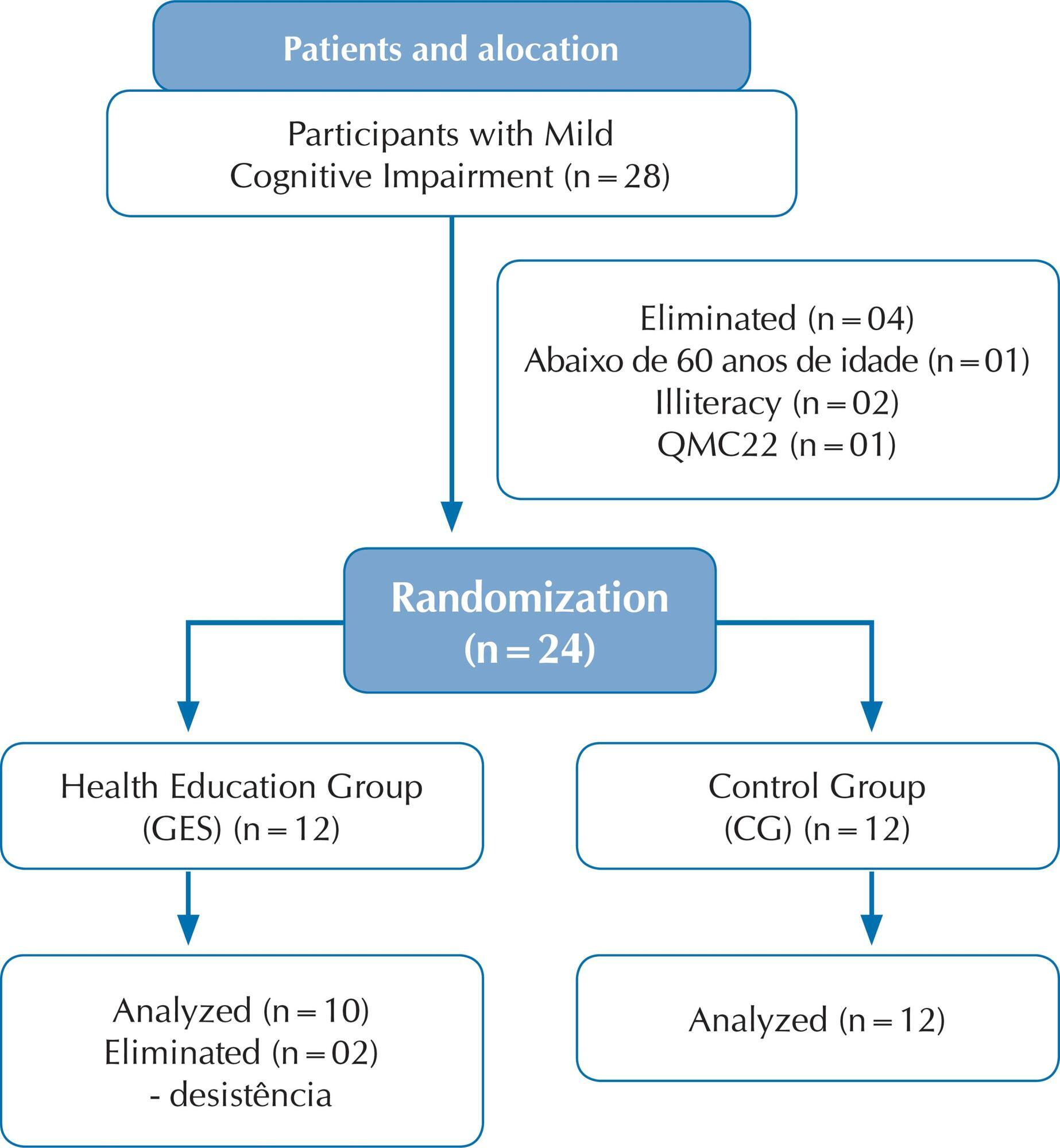-
RESEARCH
Effects of health education in the elderly with mild cognitive impairment
Revista Brasileira de Enfermagem. 2018;71(suppl 2):801-810
01-01-2018
Abstract
RESEARCHEffects of health education in the elderly with mild cognitive impairment
Revista Brasileira de Enfermagem. 2018;71(suppl 2):801-810
01-01-2018DOI 10.1590/0034-7167-2017-0032
Views0See moreABSTRACT
Objective:
to analyze the effects of health education on both cognition and depressive/anxiety symptoms in the elderly with Mild Cognitive Impairment (MCI).
Method:
this is a randomized and controlled clinical trial. Participants (n=22) were recruited from a specialized outpatient clinic, and assigned into two groups: a Health Education Group (HEG) (n=10) and a Control Group (CG) (n=12). The participants were evaluated before and after the intervention, which was composed of classes and dynamics. The intervention consisted of 20 meetings, over a period of five months. The assessment was performed by means of the Addenbrooke’s Cognitive Examination – Revised (ACER), the Mini-Mental State Examination to access participant’s cognitive state, and the Beck’s Scale to access depressive/anxiety symptoms. A Memory Complaints Scale (EQM) was also used. The analysis was carried out using the Student’s t test for paired samples.
Results:
the HEG group demonstrated an improvement in attention/orientation (p= 0,026), memory (p=0.001), language (p= 0.033), and ACE-R (p= 0.003). On the other hand, the CG did not present improvement.
Conclusion:
the results highlight the importance of non-pharmacological interventions in older adults with MCI to reduce cognitive deficits.

-
RESEARCH
Replication of the training program in nonverbal communication in gerontology
Revista Brasileira de Enfermagem. 2015;68(6):1042-1049
01-01-2015
Abstract
RESEARCHReplication of the training program in nonverbal communication in gerontology
Revista Brasileira de Enfermagem. 2015;68(6):1042-1049
01-01-2015DOI 10.1590/0034-7167.2015680607i
Views0See moreABSTRACT
Objective:
to measure the rate of assimilation of applied content at immediate and subsequent moments after a nonverbal communication in gerontology training program.
Method:
descriptive and exploratory fi eld study developed in three state administered hospitals, which attend Brazilian National Health Service (SUS) clients. The duration of the training was twelve hours, applied with 102 healthcare professionals.
Results:
the results revealed that the rate of assimilation of the content immediately after the program was satisfactory, as well as being satisfactory in the aspects concept of aging; strategies to foster the independence and autonomy of the elderly person; communication interferences linked to the elderly and the professional; recognition of non-verbal functions and dimensions. The exception was the professional perception faced with aspects that influence the success of communication.
Conclusion:
it was concluded that the replication of this program was relevant and current for the hospital context, remaining effi cient for healthcare professionals.



